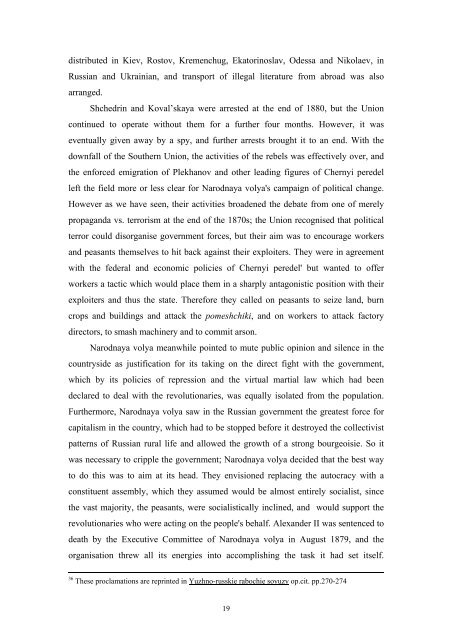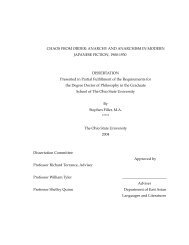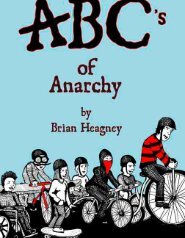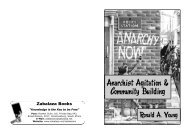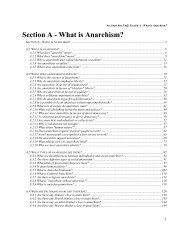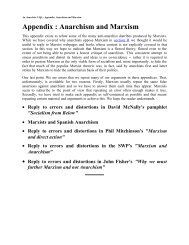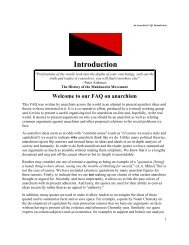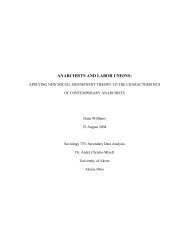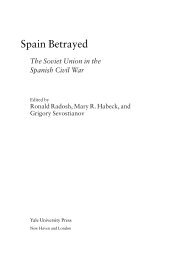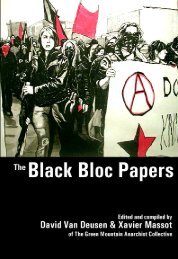Graham Gamblin - Infoshop.org
Graham Gamblin - Infoshop.org
Graham Gamblin - Infoshop.org
Create successful ePaper yourself
Turn your PDF publications into a flip-book with our unique Google optimized e-Paper software.
distributed in Kiev, Rostov, Kremenchug, Ekatorinoslav, Odessa and Nikolaev, in<br />
Russian and Ukrainian, and transport of illegal literature from abroad was also<br />
arranged.<br />
Shchedrin and Koval’skaya were arrested at the end of 1880, but the Union<br />
continued to operate without them for a further four months. However, it was<br />
eventually given away by a spy, and further arrests brought it to an end. With the<br />
downfall of the Southern Union, the activities of the rebels was effectively over, and<br />
the enforced emigration of Plekhanov and other leading figures of Chernyi peredel<br />
left the field more or less clear for Narodnaya volya's campaign of political change.<br />
However as we have seen, their activities broadened the debate from one of merely<br />
propaganda vs. terrorism at the end of the 1870s; the Union recognised that political<br />
terror could dis<strong>org</strong>anise government forces, but their aim was to encourage workers<br />
and peasants themselves to hit back against their exploiters. They were in agreement<br />
with the federal and economic policies of Chernyi peredel' but wanted to offer<br />
workers a tactic which would place them in a sharply antagonistic position with their<br />
exploiters and thus the state. Therefore they called on peasants to seize land, burn<br />
crops and buildings and attack the pomeshchiki, and on workers to attack factory<br />
directors, to smash machinery and to commit arson.<br />
Narodnaya volya meanwhile pointed to mute public opinion and silence in the<br />
countryside as justification for its taking on the direct fight with the government,<br />
which by its policies of repression and the virtual martial law which had been<br />
declared to deal with the revolutionaries, was equally isolated from the population.<br />
Furthermore, Narodnaya volya saw in the Russian government the greatest force for<br />
capitalism in the country, which had to be stopped before it destroyed the collectivist<br />
patterns of Russian rural life and allowed the growth of a strong bourgeoisie. So it<br />
was necessary to cripple the government; Narodnaya volya decided that the best way<br />
to do this was to aim at its head. They envisioned replacing the autocracy with a<br />
constituent assembly, which they assumed would be almost entirely socialist, since<br />
the vast majority, the peasants, were socialistically inclined, and would support the<br />
revolutionaries who were acting on the people's behalf. Alexander II was sentenced to<br />
death by the Executive Committee of Narodnaya volya in August 1879, and the<br />
<strong>org</strong>anisation threw all its energies into accomplishing the task it had set itself.<br />
36 These proclamations are reprinted in Yuzhno-russkie rabochie soyuzy op.cit. pp.270-274<br />
19


